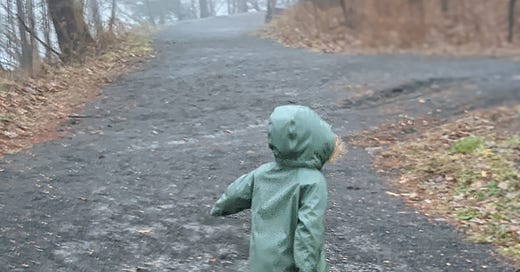Lermontov
On a visit to me on Sunday, Robert (my husband, Robert Jaffe), declared: “I love Russian!” and he sang for me a famous song, Выхожу один я на дорогу (“Alone I set out on the road…”). He explained that the words were written by the beloved poet Mikhail Lermontov. I looked it up; it was written in 1841, the year Lermontov died.
Not five minutes later, I showed Robert an obituary in The Economist about Mikhail Gorbachev, who died August 30 at age 91. The obit mentioned his devotion to his wife, Raisa, who died of leukemia in 1999.
“Soon after burying her, he appeared at a backstage party at the Moscow Art Theatre. An actor called on the ex-president to read or sing something. Everyone froze with embarrassment, except Mr Gorbachev. The crowd gave him space, and he sang Lermontov’s poem, ‘Alone I set out on the road. The flinty path is sparkling in the mist’.”
Add to that, I just discovered a documentary, Meeting Gorbachev, by Werner Herzog. It’s available on Kanopy. In the last few minutes, when asked whether he has anything to add, the great Russian recites Lermontov’s words—that song—from memory.
Here is a link to a group of men singing “Alone I set out on the road” with the deep harmony of the Russian soul. It is probably my favorite YouTube ever.
Fall asters
I have been thinking and writing (for myself) about poetry these last few days. A memory, something I had not thought about in years: My second-grade teacher reading us a poem and asking what was meant by the line
“And asters by the brookside
Make asters in the brook.” I knew! I knew the answer! And I never forgot it.
And today, our yoga teacher, Gabrielle, read us a poem at the end of our session. It was “September,” by Helen Hunt Jackson. It begins:
“The golden-rod is yellow, The corn is turning brown; The trees in apple orchards With fruit are bending down.” And the third stanza: “The sedges flaunt their harvest, In every meadow nook; And asters by the brookside Make asters in the brook.”
Our lives are lived in sequence, except when the particles of it arc back upon themselves and reform into new realities, new memories. The seed that hides in the pinecone becomes a mighty fir that sets seeds in its pinecones. Synchronicities—Jung-speak for coincidences—remind us of that. What about you? Do you find the older you get, the more coincidences you see? Or do coincidences even matter?



